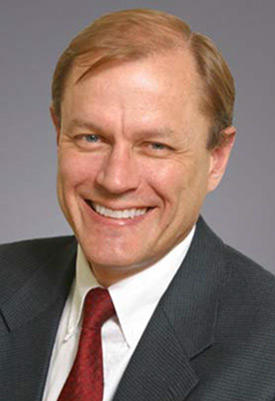
 Steve Huntoon | Steve Huntoon
Steve Huntoon | Steve HuntoonGiven current events, it should go without saying that sound energy policy is more important than ever.
Here’s a few no-brainers we should be doing: (1) banning “proof of work” cryptocurrencies (like Bitcoin),[1] (2) HVAC (emphasis on AC) interconnections between ERCOT and the rest of the country,[2] (3) unique emergency ratings for interconnection studies,[3] (4) new technologies for increasing capacity of existing transmission lines,[4] (5) LED lighting[5] and, dare we keep saying it, (6) a carbon price/tax.[6]
Instead, new notions get traction that cross into insanity. Like the recent promotion of cryptocurrency mining as something that increases grid reliability.[7] The epicenter of this crackpot idea is Texas, which seems to have learned little from February of last year. Chief cheerleaders include Gov. Greg Abbott[8] and Sen. Ted Cruz.[9]
The crypto claim is that after crypto mining increases electric demand, it can then be curtailed when needed for reliability. Please note the bloody obvious: Increasing electric demand never increases reliability because increased demand can never be curtailed more than the increase. Think of the retailer increasing the list price so that the discount from list price can be bigger. Does the consumer save something?
The crypto rejoinder is that crypto demand incents new capacity so curtailment at peak actually could be beneficial. But as Berkeley professor Severin Borenstein points out: “Increasing demand at times when capacity is not scarce does not raise long-run investment in capacity. … Even if it increases price during off-peak times, that just leads to substitution of baseload for peaker capacity, but not more capacity”[10] (emphasis added).
Mic drop.
Another bit of crypto sophistry is the claim that crypto mining uses relatively more renewable energy than other electricity uses.[11] Beyond the problem that this claim relies on industry self-reports (and what bad guy self-reports?),[12] it misses the fundamental point that if this renewable energy wasn’t being used for crypto mining it would be displacing nonrenewable energy sources. Duh.
Here’s another howler from a congressional hearing on crypto and the grid: “Computing is a better battery.”[13] Come on, computing is no more battery than a poultry plant.
Need more insanity data points? In Miami, the new “MiamiCoin” is 95% off its high, and the mayor is having second thoughts on whether it can be relied on to fund the city and abolish taxes.[14] Who would have thought?
Farther south, the president of El Salvador — self-styled “coolest dictator in the world” — wants to build the world’s first “Bitcoin city” at the base of the Conchagua volcano.[15] What could possibly go wrong?
Bottom line: Let’s advance no-brainers and stop the insanity.
Columnist Steve Huntoon, principal of Energy Counsel LLP, and a former president of the Energy Bar Association, has been practicing energy law for more than 30 years.
[1] https://energy-counsel.com/docs/The-New-Technoking-and-His-Bitcoin-Crown.pdf. Plus, https://theweek.com/feature/opinion/1009450/the-spectacular-risk-of-cryptocurrency-investing
[2] https://www.energy-counsel.com/docs/a-modest-proposal.pdf; https://energyathaas.wordpress.com/2022/01/31/the-most-obvious-way-to-avoid-another-texas-blackout
[5] https://energy-counsel.com/docs/LED-Kills-the-Edison-Star-2017-01-24%20RTO-Insider-Individual-Column.pdf. The Biden administration continues to diddle around on LED lighting and other energy efficiency measures. https://news.bloomberglaw.com/environment-and-energy/biden-deadline-slips-for-undoing-trump-era-efficiency-standards. What’s the rush?
[6] “’If we don’t put that price of carbon on the system, I don’t see how anything could work,’ Harvard economist William Hogan said in the last session of the daylong conference.” https://www.rtoinsider.com/articles/29867-epsa-members-renew-call-carbon-price
[7] See, generally, https://www.utilitydive.com/news/bitcoin-mining-as-a-grid-resource-its-complicated/617896/
[8] https://www.bloomberg.com/news/articles/2022-01-27/texas-governor-eyes-bitcoin-mining-to-fortify-the-electric-grid
[11]https://energycommerce.house.gov/sites/democrats.energycommerce.house.gov/files/documents/Witness%20Testimony_Brooks_OI_2022.01.20_0.pdf
[12] And for an overall skeptical view: https://www.vox.com/2019/6/18/18642645/bitcoin-energy-price-renewable-china

